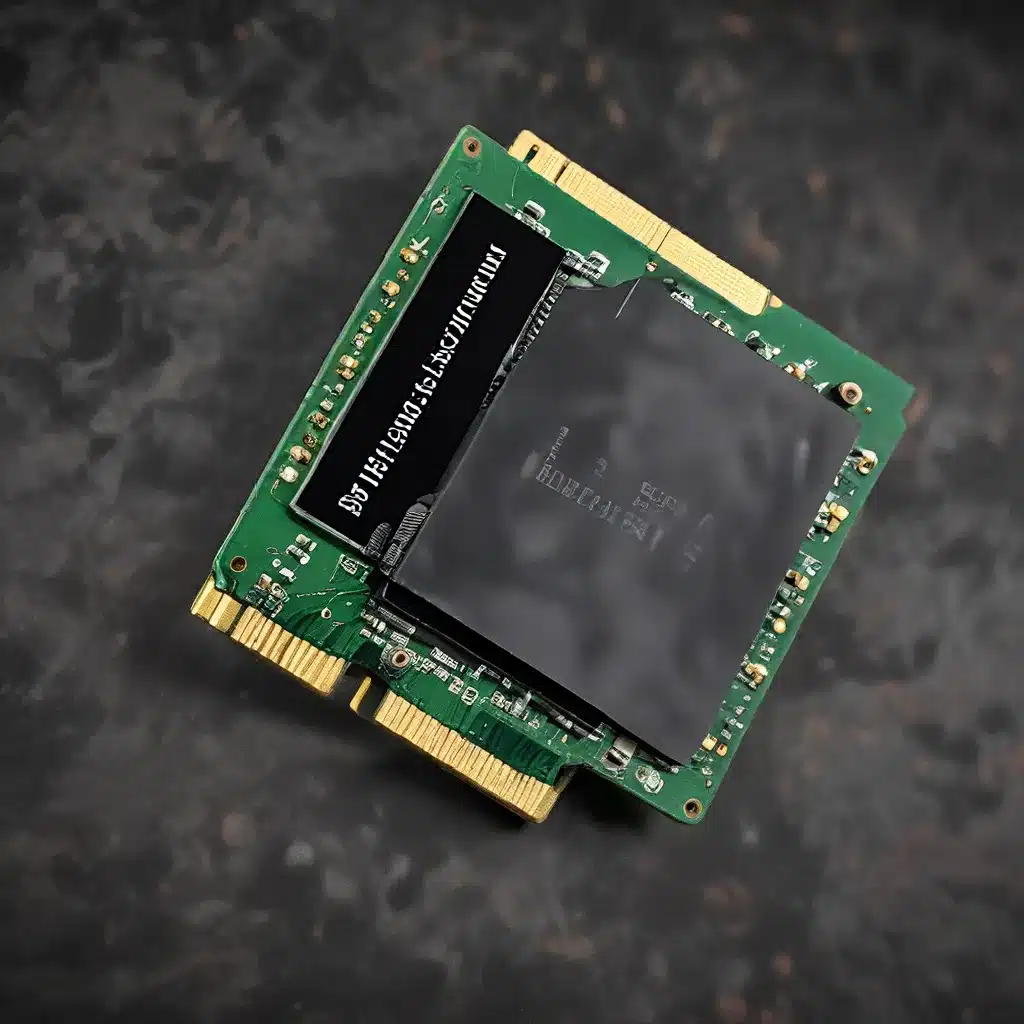Unleashing the Quantum Leap in Computing Power
In today’s digital age, computing power plays a pivotal role in shaping our technological landscape. From the smartphones in our pockets to the supercomputers powering cutting-edge research, the ability to process vast amounts of data quickly and efficiently has revolutionized industries, transformed scientific discovery, and opened up new frontiers of innovation. But what if I told you that the computing power we currently possess is merely the tip of the iceberg? Brace yourself, my friends, for I’m about to introduce you to the remarkable world of quantum computing.
Imagine a computer that can perform calculations and solve problems exponentially faster than the most advanced classical computers we have today. A machine that can simulate complex chemical reactions, crack the toughest encryption methods, and unlock the secrets of the universe with unparalleled speed and precision. Welcome to the realm of quantum computing, where the rules of classical physics are shattered, and the very fabric of information processing is reimagined.
Diving into the Quantum Realm
To truly understand the power of quantum computing, we must first explore the fundamental principles that govern the quantum world. At its core, quantum computing harnesses the strange and often counterintuitive behavior of subatomic particles, such as electrons and photons. Unlike the familiar binary logic of classical computers, where information is stored and processed as a series of 0s and 1s, quantum computers leverage the quantum states of these particles to encode and manipulate data.
Imagine a coin toss – in the classical world, the coin can only land on either heads or tails. But in the quantum realm, the coin can exist in a superposition of both states simultaneously, until it is observed and collapses into a single outcome. This concept of superposition is the foundation of quantum computing, where a quantum bit, or “qubit,” can represent a 0, a 1, or a seamless blend of the two.
But the quantum world doesn’t stop there. Quantum particles can also become entangled, where the state of one particle is inextricably linked to the state of another, no matter the distance between them. This phenomenon, known as quantum entanglement, allows quantum computers to perform astonishingly complex calculations by exploiting the interconnectedness of these particles.
As Rakesh Kushwaha eloquently explains, “In today’s digital age, computing power plays a pivotal role in shaping our technological landscape. From smartphones to supercomputers, the ability to process vast amounts of data quickly and efficiently has revolutionized industries, transformed scientific research, and opened up new frontiers of innovation.”
The Quantum Advantage: Exponential Leap in Computational Power
Now, let’s pause for a moment and consider the implications of quantum computing. Imagine a world where we can simulate complex chemical reactions with such precision that we can design revolutionary new medicines, or where we can crack the toughest encryption methods with lightning speed, rendering current security protocols obsolete. This is the promise of quantum computing – an exponential leap in computational power that could unlock unprecedented breakthroughs.
As Vibhu Sharma explains, “Computing power refers to the capacity of a computing system to execute complex computations and handle large volumes of data within a given timeframe. It encompasses a combination of factors including processing speed, memory capacity, storage capabilities, and parallel processing capabilities. Essentially, computing power measures the efficiency and capability of a system to perform computations and handle demanding tasks.”
To put this into perspective, let’s consider a classic problem in computer science – the factorization of large numbers. This task is at the heart of many encryption algorithms, and it can take even the most powerful classical computers years to crack. But a quantum computer could potentially solve this problem in a matter of seconds, rendering current encryption methods obsolete.
The Evolution of Computing Power: From Mainframes to Quantum Supremacy
To truly appreciate the transformative potential of quantum computing, we must first understand the remarkable evolution of computing power over the past decades. As Pranab Roy Choudhury has highlighted, computing power has witnessed tremendous growth, driven by Moore’s Law, which states that the number of transistors on a microchip doubles approximately every two years.
This exponential increase in transistor density has paved the way for more powerful and energy-efficient computing devices. From the early days of mainframe computers to the advent of personal computers, and now the era of cloud computing and quantum computing, the computing landscape has transformed dramatically.
But the real game-changer is the emergence of quantum computing. Whereas classical computers rely on the binary logic of 0s and 1s, quantum computers leverage the unique properties of quantum mechanics to perform computations in a radically different way. By harnessing the power of superposition and entanglement, quantum computers can potentially solve certain problems exponentially faster than their classical counterparts.
Quantum Computing in Action: Transforming Industries and Solving Global Challenges
Imagine a world where we can design more efficient and sustainable energy systems, unlock the secrets of DNA to develop personalized medicine, or unravel the mysteries of the universe with unprecedented accuracy. This is the promise of quantum computing, and it’s already being realized in various industries and fields of research.
In the realm of materials science, quantum computers can simulate complex chemical reactions and molecular structures with unparalleled precision, paving the way for the development of revolutionary new materials, catalysts, and even pharmaceuticals. Imagine being able to design a drug that can precisely target a specific disease, with minimal side effects – this is the kind of breakthrough that quantum computing can enable.
Moreover, quantum computers can also revolutionize the field of cryptography. By harnessing the power of quantum mechanics, they can quickly and efficiently crack even the most sophisticated encryption methods, rendering current security protocols obsolete. This prospect has significant implications for the protection of sensitive data, financial transactions, and national security.
But the impact of quantum computing extends far beyond these immediate applications. Imagine the possibilities for tackling global challenges, such as climate change, food security, and sustainable energy production. Quantum computers could help us model complex environmental systems, optimize the allocation of resources, and develop new technologies that could transform the way we interact with our planet.
Overcoming the Challenges: Towards Quantum Supremacy
Of course, the journey towards realizing the full potential of quantum computing is not without its challenges. Developing and scaling quantum computing systems is a complex and resource-intensive endeavor, requiring advancements in materials science, cryogenics, and control systems. Additionally, the fragile nature of quantum states, susceptible to environmental interference, poses a significant obstacle to achieving reliable and scalable quantum computing.
But the scientific community, along with leading tech companies and research institutions, are working tirelessly to overcome these challenges. Significant progress has already been made, with the demonstration of quantum supremacy – the ability of a quantum computer to outperform the most advanced classical computers on specific tasks.
In 2019, Google’s Sycamore quantum processor achieved this milestone, performing a complex calculation in just 200 seconds that would have taken the world’s fastest supercomputer 10,000 years to complete. This breakthrough marked a crucial step towards the realization of practical quantum computing, and it has ignited a global race to achieve quantum supremacy in a wide range of applications.
The Future is Quantum: Embracing the Next Computing Revolution
As we stand on the cusp of the quantum computing revolution, the possibilities for transformative discoveries and groundbreaking innovations are truly boundless. From unlocking the secrets of the universe to solving the world’s most pressing challenges, the power of quantum computing is poised to reshape the technological landscape in ways we can scarcely imagine.
At ITFix, we are committed to staying at the forefront of this exciting new frontier. Our team of quantum computing experts is dedicated to exploring the latest advancements in the field, and we are actively working to develop cutting-edge solutions that leverage the power of quantum mechanics to drive transformative change.
As we continue to push the boundaries of what’s possible, I encourage you to join us on this extraordinary journey. Whether you’re a scientist, an entrepreneur, or simply someone captivated by the wonders of technology, there has never been a more exciting time to be a part of the quantum computing revolution. Together, let’s harness the power of quantum computing to unlock a world of groundbreaking discoveries and reshape the future of our digital landscape.













